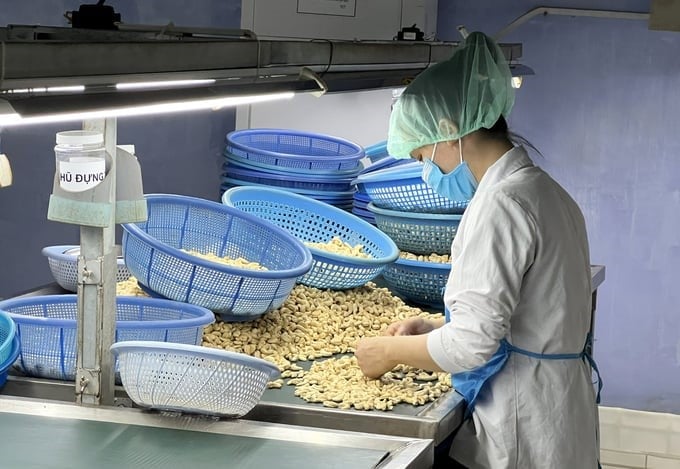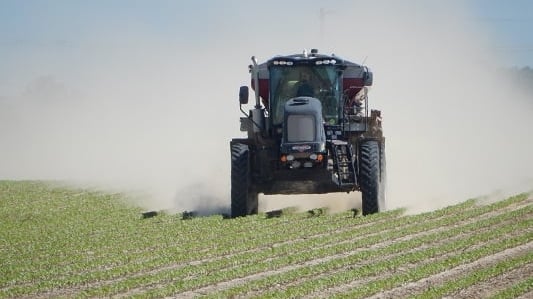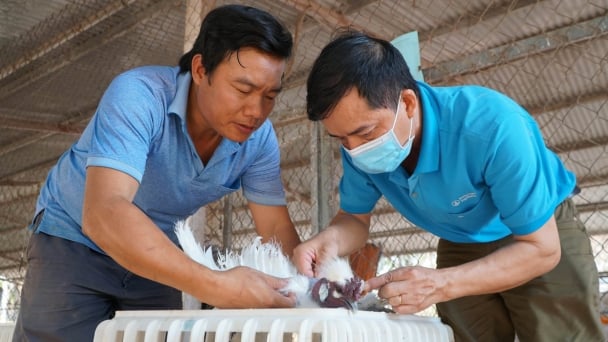May 14, 2025 | 08:06 GMT +7
May 14, 2025 | 08:06 GMT +7
Hotline: 0913.378.918
May 14, 2025 | 08:06 GMT +7
Hotline: 0913.378.918
First is the requirement for quality. The quality of cashew kernels is determined by the percentage of defective products, by quantity or weight, and by their size, shape, and color.
Specific requirements for the quality of cashew nuts are established in a number of standards. The most widely applied standard in Europe is that established by the United Nations Economic Commission for Europe (UNECE).
Similar but slightly different standards have also been developed by several producing countries, such as India, Brazil, Vietnam, Tanzania, Kenya, and the Association of Southeast Asian Nations.

Although food safety certification is not required under European law, it has become mandatory for most food importers in this market. Photo: TL.
The second is the requirement for food safety. Although food safety certification is not mandatory under European law, it has become mandatory for most European food importers.
Most European buyers will require certification recognized by the Global Food Safety Initiative (GFSI). For cashew nuts, the most popular certification programs, all accredited by GFSI, include International Featured Standards (IFS); British Retail Consortium Global Standards (BRCGS); Food Safety System Certification (FSSC 22000); and Safe Quality Food (SQF) Certification.
The third is on corporate social responsibility regulations. Companies have different requirements related to social responsibility. Some companies will require compliance with their code of conduct or general standards, such as the Supplier Ethical Data Exchange (SEDEX), the Ethical Trading Initiative (ETI), or the Amfori Business Social Compliance Initiative (BSCI) Code of Conduct.
The fourth is on packaging. There is no general regulation on the packaging size of cashew nuts for export, but the most common type of export packaging is the polybag of 10–25 kg. A 25-kg flexi bag can be packed in a carton, and 700–750 such cartons will make a full container. To extend shelf life, bags are often vacuumed by sucking air and injecting carbon dioxide and nitrogen. Cashew nuts are also packaged in airtight containers.
The use of paper or stamps carrying commercial specifications is permitted as long as the printing or labeling is done with non-toxic ink or glue. Packaging is often formed in cubic shapes to make efficient use of pallet and container space. Dimensions may vary, but all are compatible with standard pallet and container sizes.
The fifth is labeling requirements. The product's name, "cashew kernels" or "cashew nuts," must appear on the label. Other trade names related to appearance may be used in addition to "cashew kernel." It is normal for export packaging labels to include the year of farming. Information on bulk packaging must be indicated on the packaging or in the enclosed documents.
Bulk package labeling must include the following information: name of the product; batch identification number; name and address of the manufacturer, packer, distributor, or importer; and storage instructions. Of these, storage and transportation instructions are extremely important because the high oil content and high moisture can negatively affect quality if not handled properly. The batch identification number and name and address of the manufacturer, packer, distributor, or importer may be replaced by an identification mark.
In the case of retail packaging, product labeling must comply with the European Union regulation on the provision of food information to consumers. This regulation stipulates requirements for nutrition labeling, origin labeling, allergen labeling, and legibility (minimum font size for mandatory information). It is noted that this regulation lists cashew as a product that may cause allergy or intolerance, so allergen information must be clearly displayed on retail packaging.
If a product containing cashew nuts is not labeled as an allergen, it will be withdrawn from the market. These cases are reported by the European Rapid Alert System for Food and Feed (RASFF).
The sixth is regulations on organic cashew nuts. To market organic cashew nuts in Europe, they must be grown using organic production methods according to relevant European legislation. Planting and processing facilities must be inspected by an accredited certification body before they are allowed to use the European Union's organic logo on their products, as well as the logo of the standard holding unit, such as Naturland in Germany.
Organic agriculture in the EU is expanding rapidly thanks to growing consumer interest in organic goods. To solve this problem, the EU has implemented a new Organic Law since January 2022. This law strengthens the control system, increases consumer confidence in the EU's organic products, and sets similar standards for domestic and imported organic products. Furthermore, a wider range of products can now be marketed as organic under these guidelines.
For equivalent countries (including India and Vietnam), certificates are issued by control agencies designated by the national competent authority, referring to the list of control agencies operating in third countries under equivalent regimes. In other countries, organic certification is issued by control authorities in the EU, EEA, or CH.
The seventh is regulations on the national organic label in Northern Europe. Sweden's KRAV, an association with its own standards and labels, certifies about 80% of organic products in the country. KRAV standards are adjusted in accordance with IFOAM's standards. In some cases, these standards are more stringent than the EU's standards.
Denmark has a state-owned eco-label called the Danish organic logo, or the red Ø mark. More than 95% of Danish consumers are familiar with the red Ø mark, and about 90% have great trust in the Ø label.
Norway's official national organic logo is the Ø label, issued by Debio, Norway's national organic farming association. Debio's Ø label can be applied to imported products certified by an accredited body in the country of origin, according to Norwegian rules and regulations.

Organic agriculture in the EU is expanding rapidly thanks to growing consumer interest in organic goods. Photo: CPT.
The eighth is sustainability certification. The two most commonly used sustainability certification programs are Fairtrade and the Rainforest Alliance.
To improve sustainable production and sourcing of cashew nuts, a group of companies and organizations, mainly in Europe, established the Sustainable Nut Initiative in 2015. The main goal of this initiative is to improve the situation in grain-producing countries and aim for a sustainable supply chain.
Businesses have different requirements regarding social responsibility. Some companies will insist on their own code of conduct or follow common standards, such as the Sedex Members Ethical Trade Audit (SMETA) Standard. Other alternatives include the Ethical Trading Initiative (ETI) Base Code, the Amfori Business Social Compliance Initiative (Amfori BSCI) Code of Conduct, and B Corp Certification.
The ninth is ethnic certification. Muslim dietary laws (Halal) and Jewish dietary laws (Kosher) impose specific dietary restrictions. If countries wish to focus on Jewish or Muslim niche markets, implementing Halal or Kosher certification programs should be considered.
Translated by Thu Huyen

(VAN) The international conference titled Carbon Market: International experiences and recommendations for Vietnam was successfully held recently in Ho Chi Minh City.

(VAN) According to the Project on rearranging provincial and communal administrative units, in 2025, the country will have 34 provinces/cities, 3,321 communes, wards, and special zones, and no district-level organization.

(VAN) The vice president of fertilizer with Stone X Group says the Trump administration’s tariffs are impacting fertilizer markets.

(VAN) Resolution 57 offers Vietnam a significant opportunity to narrow the global genetic technology disparity and convert its extensive genetic resources into commercial advantages.

(VAN) The Ministry of Agriculture and Environment will prioritize the implementation of five core and breakthrough solutions in science and technology, in addition to the seven groups of tasks identified in Decision No. 503.
/2025/05/09/2422-2-131218_985.jpg)
(VAN) The Prime Minister has issued an official telegram assigning relevant units to research the plan of purchasing and temporarily stockpiling some agricultural products at risk of price decline during peak harvest time.

(VAN) Traditional welfare assessments struggle to keep pace with farms housing up to 50,000 birds per house, prompting SMART solutions to augment traditional human observation and subjecting scoring.